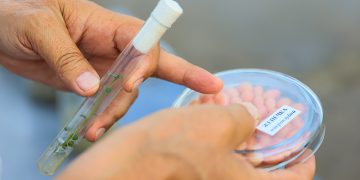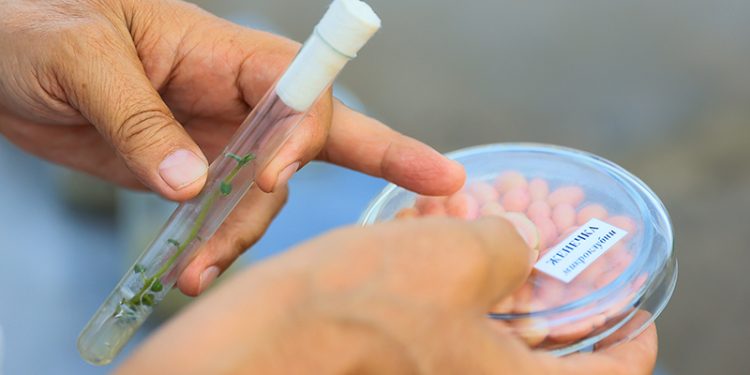Accelerated introduction of Russian seeds into agricultural production is one of the main foundations of food security. Today, breeding programs are being conducted in the Moscow Region for 18 vegetable crops at once. This year, more than 85 thousand hectares of agricultural land across the country were sown with seeds of varieties and hybrids produced in the Moscow region. The goal for the near future is to significantly expand this work.
ETHIOPIAN WOMAN WITH A BARON
The recognized leader in the selection and production of vegetable seeds in Russia is the Agroholding “Poisk”. According to the press service of the Ministry of Agriculture and Food of the Moscow region, new varieties and hybrids are created at the enterprise both by traditional methods of breeding and using modern biotechnological methods.
Today, more than 820 varieties and hybrids of the “Search” selection are registered in the state register of breeding achievements. All of them are successfully used in commercial vegetable growing and in personal subsidiary farms. At the recently completed 24th All-Russian Agro-industrial exhibition “Golden Autumn”, the company presented sales hits: melon “Ethiopian”, beetroot “mulatto”, cabbage “Duchess F1”, pepper “Baikal F1” and novelties: carrots “Rexy” and “Mustang F1”, beetroot “baron”.
“We have good market offers for borscht set cultures that are used in the Moscow region. To date, 23 hybrids have been created for white cabbage, there are good competitive varieties and hybrids for carrots, beetroot and onion varieties,” says Nikolay Klimenko, a member of the Board of Directors of the Agricultural Holding Poisk.
THEMSELVES WITH SEEDS
One of the priorities of the agricultural holding is the development of seed production and, as a result, the reduction of seed imports into the country.
“Now we are engaged in a serious revival of seed production zones in Russia. So, for example, we grow cabbage in Dagestan, carrots and beets – in Stavropol, Kranodar and Rostov, onions – in Astrakhan,” explains Klimenko.
Despite the fact that none of the 75 foreign companies engaged in the supply of foreign seeds to the country has yet left the market, the goal is to replace the production of seeds in Russia as much as possible, the expert emphasizes.
“The task is to make our hybrids and varieties highly competitive very quickly and revive seed production, which is in a difficult situation today,” Klimenko emphasizes.
For these purposes, the Agroholding will build a modern breeding and seed-growing complex in Yegoryevsk with the support of the Ministry of Agriculture of Russia and the Ministry of Agriculture and Food of the Moscow region.
“Based on it, we will grow such a number of lines and varieties for the borscht group that we will be able to provide at least half of Russia’s needs,” Klimenko says.
The innovative complex will include a laboratory building, greenhouses, a hangar for separating, cleaning and refining seeds and a storage facility. Up to 50% of the construction costs will be compensated by the state.
Author: Ksenia Stetsenko
A source: https://mosregtoday.ru/































